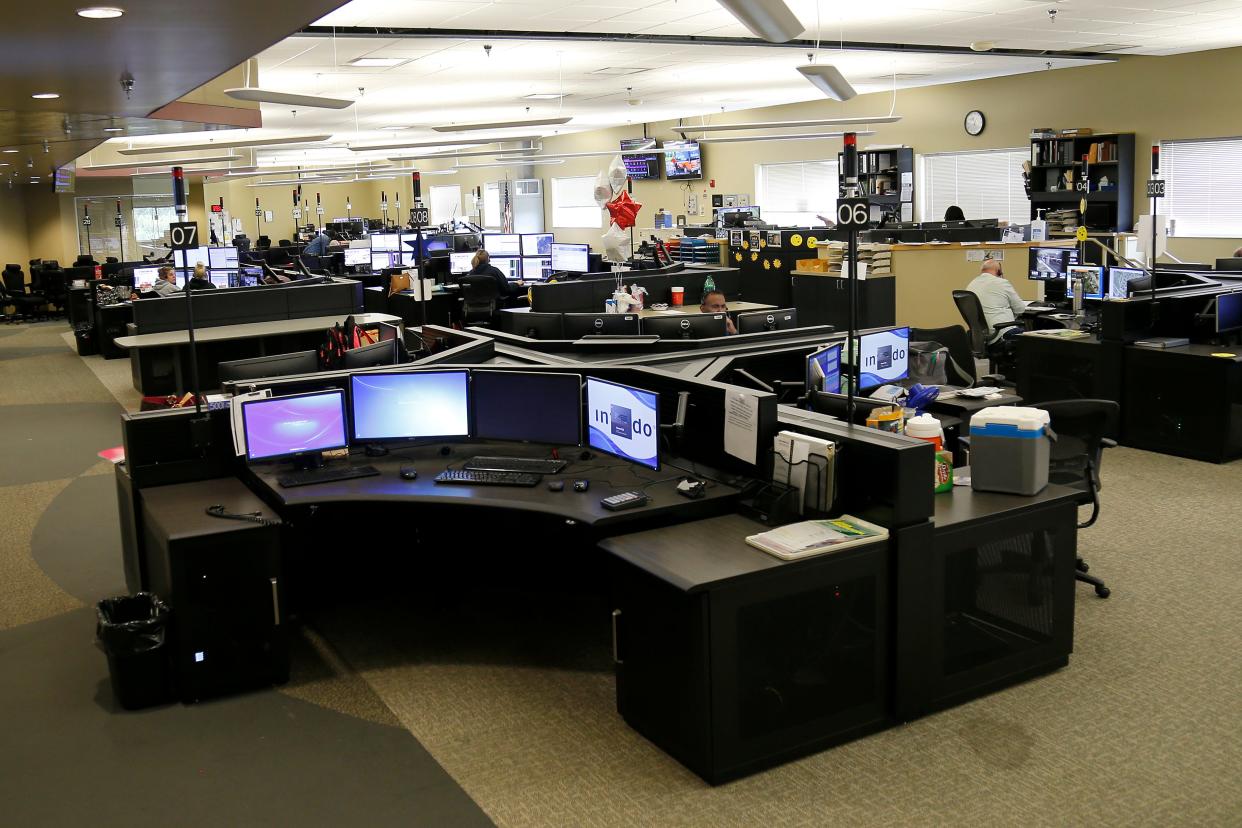Ohio 911 call-taker suspended for neglecting to send help to man who died from stroke

CINCINNATI, Ohio – A city 911 call-taker has been suspended after officials say the call-taker "violated multiple established" procedures during a call about a man who died in January from a stroke.
"What took place on the night of Jan. 12 is nothing short of a tragedy," City Manager Patrick Duhaney said in an email to City Council members. "It's unclear if the individual would have lived or died, but the actions of this call-taker undermined the possibility of a positive outcome in this situation."
That night, a resident of an apartment building on Groesbeck Road called 911 to report that one of their neighbors appeared to have suffered a stroke, according to Duhaney’s email. The caller was in a different apartment on a different floor.
The call-taker told the resident to go to the man suffering the stroke, so he could be asked questions. The resident, however, told the call-taker that "the patient might not want to answer questions or want help,” Duhaney said.
According to Duhaney’s email: During the nearly eight-minute 911 call, the resident said the following:
“He is getting worse and worse.”
“This is an emergency.”
“He’s had a stroke.”
“He’s gonna die.”
Despite that, the call-taker told the resident: “If he doesn’t want help, they won’t do anything, he has to want to be helped.” The call-taker also said there was nothing firefighters or police officers could do.
“They can’t force themselves on him,” the call-taker said, according to Duhaney.
Eventually, the resident hung up, the call-taker closed the call and no help was sent.
The next day, there was a 911 call indicating that the man had died. His name has not been released by the city.
Leadership at the city’s Emergency Communications Center investigated and determined that by 45 seconds into the call, the call-taker had been provided a location and been told about a serious medical emergency – but didn’t initiate an emergency response, Duhaney said in the email.
Call-takers are trained that a person experiencing even what appears to be a stroke “must receive an immediate response that is not subject to delay," he said.
"The call-taker violated multiple established and written ECC processes and procedures," Duhaney said. "Like all call-takers, this individual had taken various required training on these processes and should have taken a more appropriate course of action."
The call-taker has been suspended with pay pending the outcome of a disciplinary process.
A city spokesman did not provide a response to a request for comment.
Duhaney also said that in days before Jan. 12 there were three 911 calls regarding the same man. In those instances, the call-takers dispatched paramedics who "were able to evaluate and respond to the patient."
The city's 911 center has been at the center of controversy before, most recently following Kyle Plush's death in the back of his van in April 2018.
Kyle's death while trapped in the back of his Honda Odyssey in the Seven Hills School parking lot – despite making two 911 calls – prompted an internal investigation and complete review of technology that police and the 911 center use.
The police department's investigation identified critical failures by operators and dispatchers in the 911 center and by the officers who were sent to the scene. Despite the errors, the department found that no employees did anything wrong.
Even before Plush's death, warnings had been raised. Those concerns had been outlined in memos, reports and emails describing a system burdened by poor management, a lack of training, long work hours, unfilled jobs and technical problems.
In July 2017, the Enquirer reported on the 911 center's series of blackouts and breakdowns. At least eight system-wide failures totaling seven hours of down time occurred between June 2016 and March 2017, according to city records obtained by The Enquirer.
In April 2018, city council passed a $454,500 plan to improve the Emergency Communication Center, including the creation of 11 new full-time positions.
Follow Kevin Grasha and Sarah Brookbank on Twitter: @kgrasha and @SarahBrookbank
This article originally appeared on Cincinnati Enquirer: Ohio 911 calltaker suspended after not sending help to man with stroke

